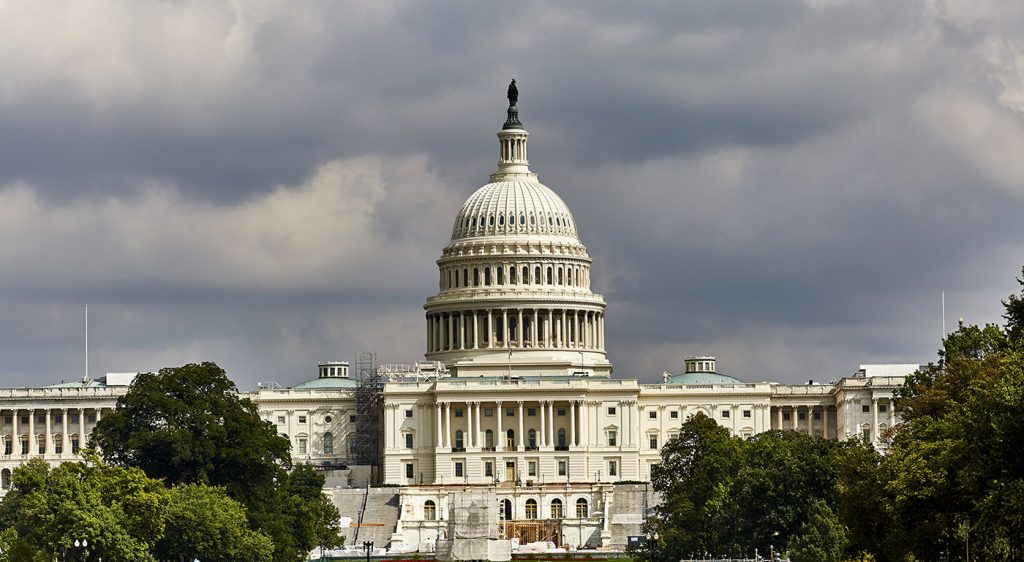
On October 19th, with a 51-49 vote, the US Senate passed its second budget resolution this year – the first resolution was tied to the Obamacare repeal effort, though that effort failed to take hold. This most recent resolution outlines the 2018 Budget, a highly-contested plan to cut taxes for the wealthy while allowing the federal deficit to increase by $1.5 trillion during the next ten years. The vote occurred over a six-hour period during what is known as a vote-a-rama session, during which Senators introduced hundreds of amendments that were quickly voted on via roll call. During the blitzkrieg session, Democrats employed political tactics, attempting to pressure Republicans into making hard decisions about deficit-reducing tax cuts and Congressional Budget Office scoring. The GOP, by and large, voted against amendments meant to prevent deficit increases and to enforce a CBO score on budget-related legislation prior to voting.
Reconciliation
Democrats, Independents and Senator Rand Paul voted against the resolution. Senate Republicans utilized a procedural tool called reconciliation to pass the budget proposal with a simple majority. The vote was essential for Republicans seeking an overhaul of the tax system, as the resolution contains instructions to overrule filibuster in future tax-related votes. The resolution also requests that the Senate Finance Committee proposes a tax reform measure by mid-November.
Senator Bob Corker expressed deep concern over the budget-making process, despite the fact that he voted for the resolution: “This is the biggest hoax cast upon the American people ever that this budget process even exists. The only thing about this that matters is in preparation for tax reform.”
Major Cuts on the Horizon
Though the resolution merely lays out a plan, it gives a general sense of what to expect from the GOP-dominated government. The resolution proposes massive cuts to spending over the next ten years. By 2027, Republicans in support of the blueprint hope to slash non-defense discretionary spending by over $630 billion, while allowing the defense budget to increase. By this measure, the defense budget would eventually increase to over $680 billion. And overall federal spending would be reduced by $5.1 trillion, according to the Senate Budget Committee.
Medicare and Medicaid and Housing
One of the more troubling proposals in the resolution is the suggestion to cut Medicare by $500 billion and to reduce Medicaid spending by $1 trillion, “so that millionaires and corporations can get a tax cut,” according to TJ Helmstetter, of Americans for Tax Fairness. The as-yet unenforceable budget portends a dismal future for the common person. It is in effect a “starting gun for what might be the most consequential legislative fight of the Trump era: the looting of the US treasury to reward billionaire GOP donors and mega-corporations, at the expense of the rest of us,” according to Ben Winkler of MoveOn.org.
Benefits for the Wealthy
That’s not to mention the proposed $800 billion cut to affordable housing, education programs and medical research over the next decade, and the trillions of dollars in tax cuts for the top 0.1 percent. According to the Tax Policy Center (a non-partisan organization), the top 1 percent would receive nearly half of the tax benefits under the White House’s tax plan. And according to Senator Chuck Schumer, “It shifts the burden from the wealthy and puts it squarely on the back of the middle class, and blows a hole in the deficit to boot.”
Drilling
The budget proposal also contains a provision that could open up the possibility for massive drilling projects in the Arctic National Wildlife Refuge. The budget blue print asks the Natural Resources Committee to cut the deficit by $5 billion over the next decade. This, critics claim, would almost certainly mean drilling in ANWR.
Republicans hope to avoid a Congressional Conference. They’ve included a number of provisions in the recent budget proposal specifically to pave the way for the resolution’s passage in the House. If the resolution does pass in the House, the GOP could accelerate the tax reform process. GOP leaders hope to pass a tax bill by the end of the year.



Leave a Comment